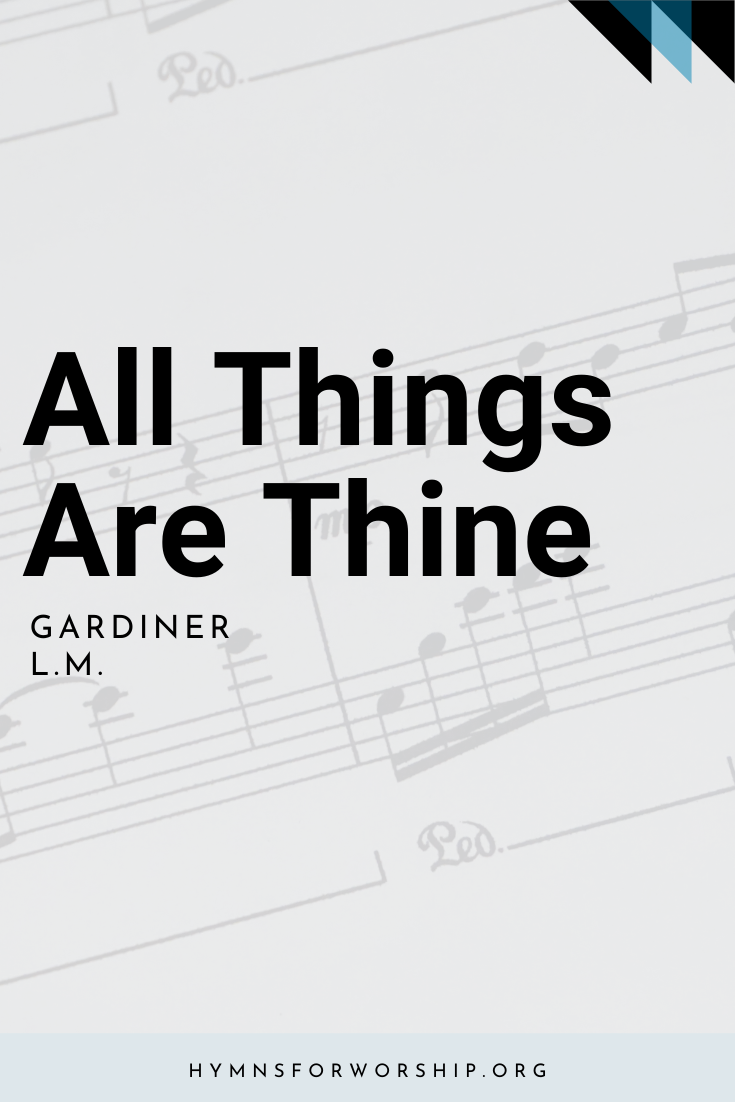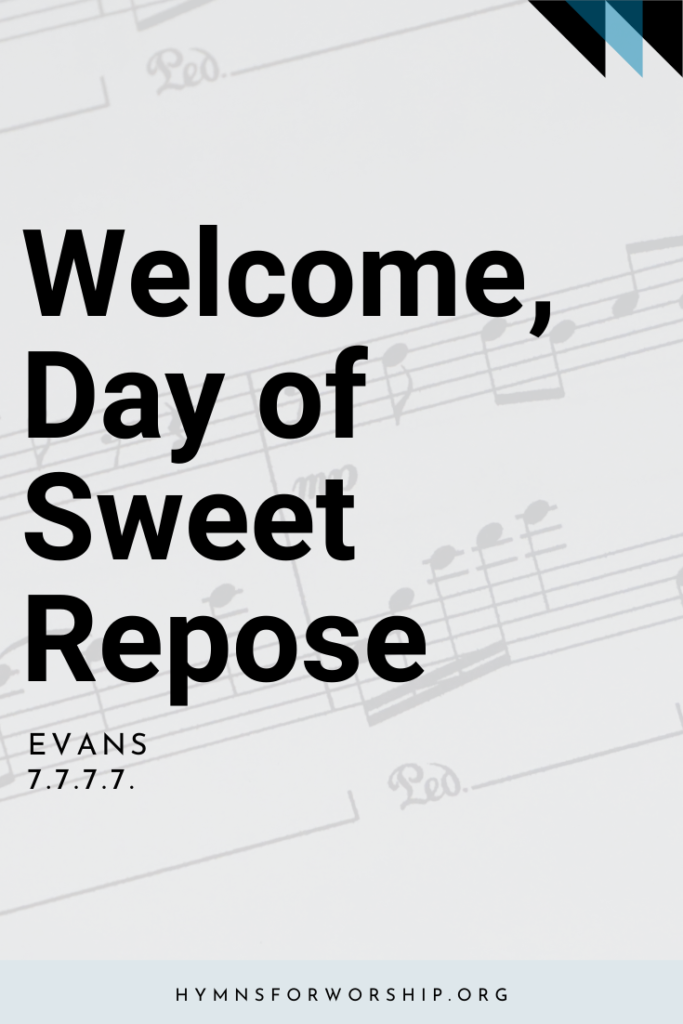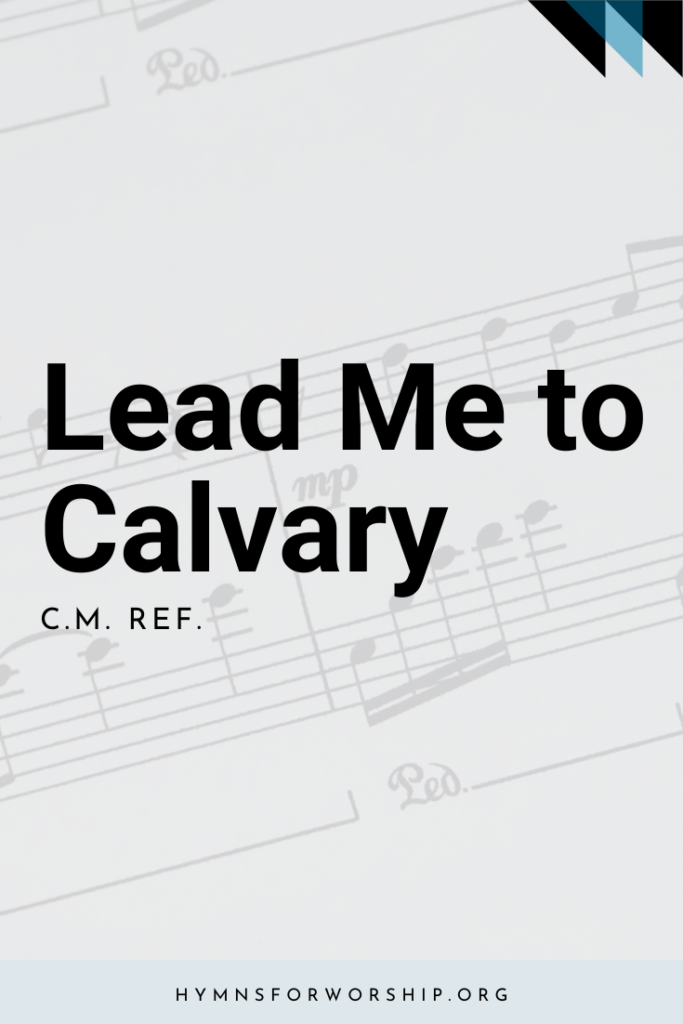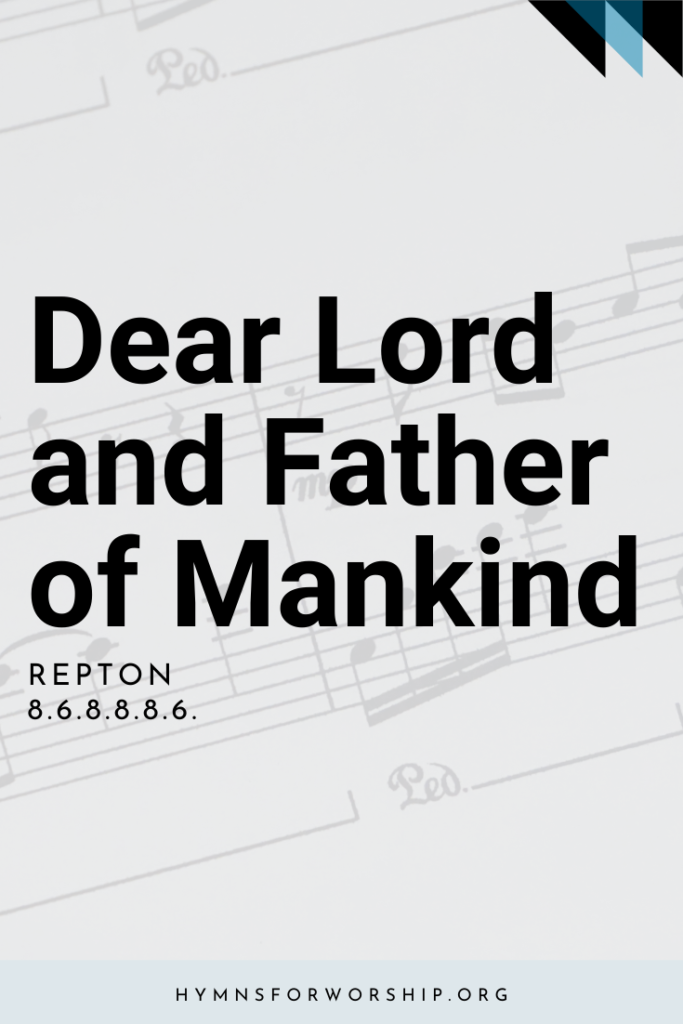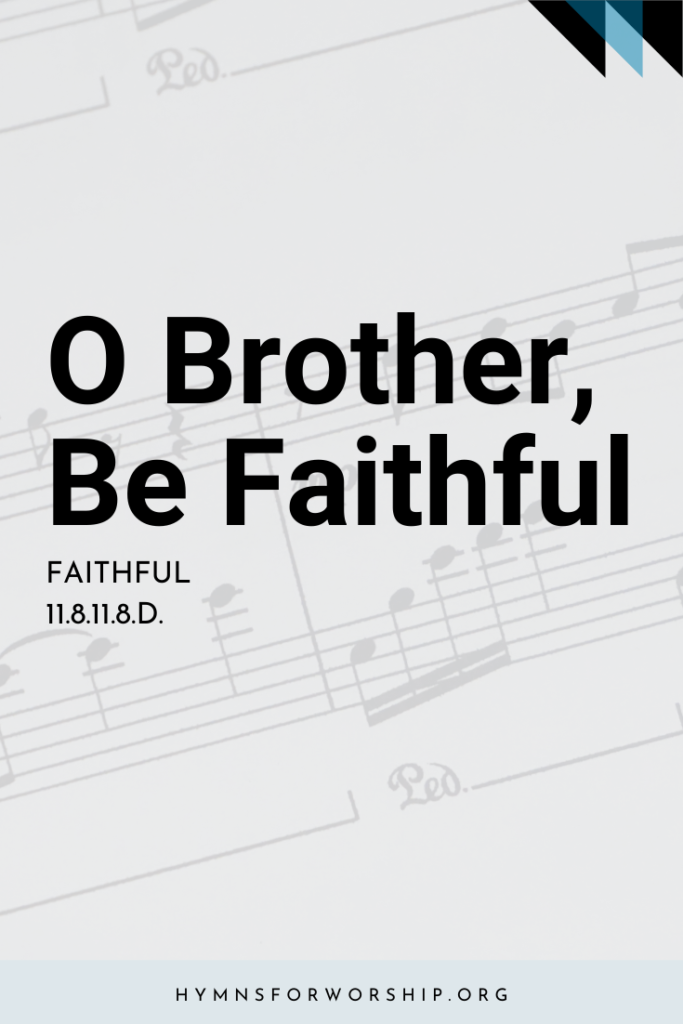CHRISTIAN CHURCH >> Church Dedication
SDAH 376
All things are Thine; no gift have we,
Lord of all gifts, to offer Thee;
And hence with grateful hearts today,
Thine own before Thy feet we lay.
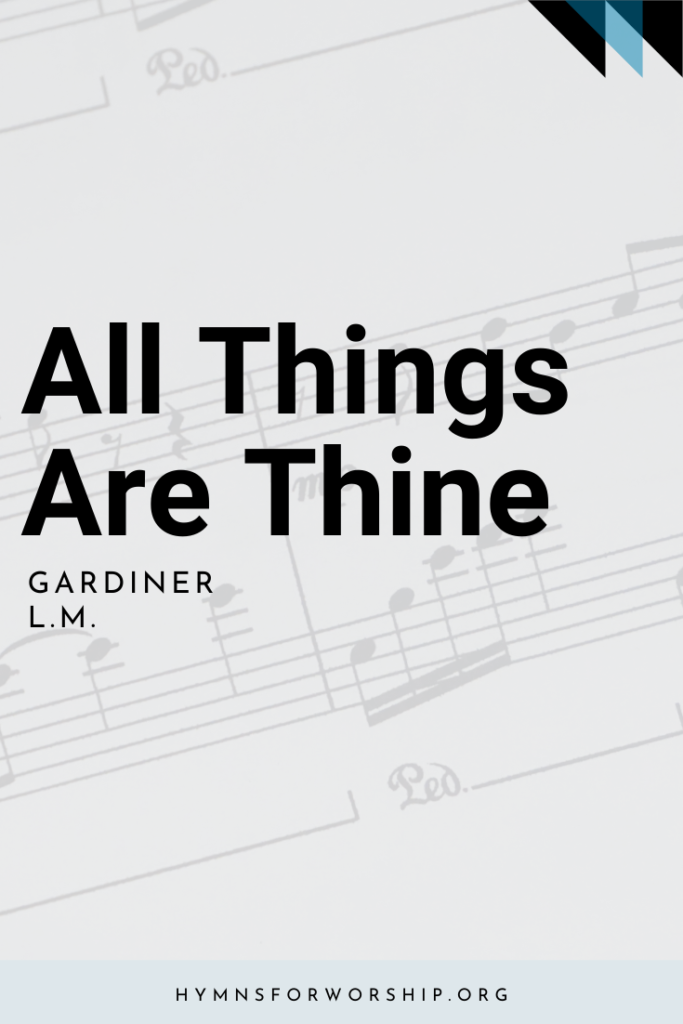

Text
1
All things are Thine; no gift have we,
Lord of all gifts, to offer Thee;
And hence with grateful hearts today,
Thine own before Thy feet we lay.
2
Thy will was in the builder’s thought;
Thy hand unseen amidst us wrought;
Thro’ mortal motive, scheme and plan,
Thy wise, eternal purpose ran.
3
No lack Thy perfect fullness knew;
For human needs and longings grew
This house of prayer- this home of rest.
Here may Thy saints be often blessed.
4
In weakness and in want we call
On Thee, for whom the heavns are small;
Thy glory is Thy children’s good,
Thy joy Thy tender Fatherhood.
5
O Father! deign these walls to bless;
Make this the abode of righteousness,
And let these doors a gateway be
To lead us from ourselves to Thee!

Hymn Info
Biblical Reference
(a) 1 Kings 8:27 (c) Isa 56:7
Author
John Greenleaf Whittier (1807-1892)
Year Published
1872
Hymn Tune
GARDINER
Metrical Number
L.M.
Tune Source
Wm. Gardiner’s Sacred Melodies, 1815
Alternate key
Lower key, SDAH 177
Hymn Score
Piano Accompaniment
Notes
Get to know the hymns a little deeper with the SDA Hymnal Companion. Use our song leader’s notes to engage your congregation in singing with understanding. Even better, involve kids in learning this hymn with our homeschooling materials.
John Greenleaf Whittier wrote these words especially for the dedication of the Plymouth Congregational Church in St. Paul, Minnesota, in 1872. To make the hymn suitable for any other church dedication, the original line 4 of stanza 3 has been changed from ‘In the fair garden of the West.” Another change has occurred in the last stanza, where the original line 2 “Fill with Thy love their emptiness.” The hymn contains a similar thought to that expressed in King Solomon’s prayer at the dedication of the Temple, for example: stanza 4, line 2, Behold, the heaven and heaven of heavens cannot contain thee” ( 1 Kings 8:27).
John Greenleaf Whittier was born on December 17, 1807, near Haverhill, Massachusetts, to poor Quaker farmers of Puritan ancestry. He worked on the farm as a shoemaker and teacher, finally accumulating enough money to attend two sessions at Haverhill Academy. Earlier he had bought a book of poems by Robert Burns from a peddler, which kindled his poetic ability. By age 14 he was writing verse, the first of which was published in the Newburyport Free Press when he was 18. After a few years of editorial work for two publications, illness forced a return to the farm, where he continued writing at night. These years were made miserable by poverty, disappointment in love, and a general loss of ambition. His first book, Legends of New England in Prose and Verse, was published in 1831. After the farm was sold in 1836, he became editor of the Pennsylvania Freeman. Most of his talent and energy for the rest of his life was spent working for the abolition of slavery. He was elected to the Massachusetts legislature in 1835 ad to the secretaryship of the Anti-Slavery Society in 1836. As a result of his strong stand on the subject, he suffered much abuse from the antiabolitionists, including the burning of his publication office. None of his poems on religious subjects were meant to be hymns. He gave as his reason, “I know nothing of music . . . . . A good hymn is the best use to which poetry can be devoted, but I do not claim that I have succeeded in composing one.” However, hymnal editors have felt otherwise; Julian’s Dictionary of hymnology lists 33 first lines of hymns that have been taken from his poetry and used, especially among American Unitarians. Two of his well-known poems are Snowbound, 1866; and The Eternal Goodness. He died at Hampton Falls, New Hampshire, on September 7, 1892.
His other hymns in SADH are No. 455, Immortal Love, Forever Full”; and Nos. 480 and 481, “Dear Lord and Father of Mankind.”
GARDINER gets its name from William Gardiner (1770-1853; see SDAH 177), who included it in his Scared Melodies, 1815. This tune is used two more times in SDAH: No. 177, “Jesus, Your Blood and Righteousness”; and No. 355, “Where Cross the Crowded Ways of Life.

